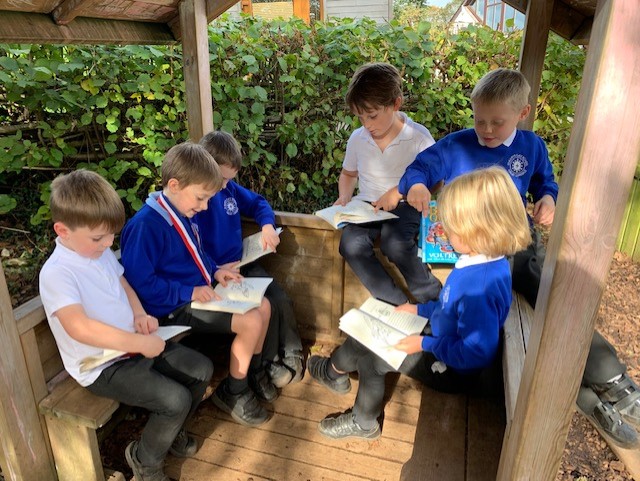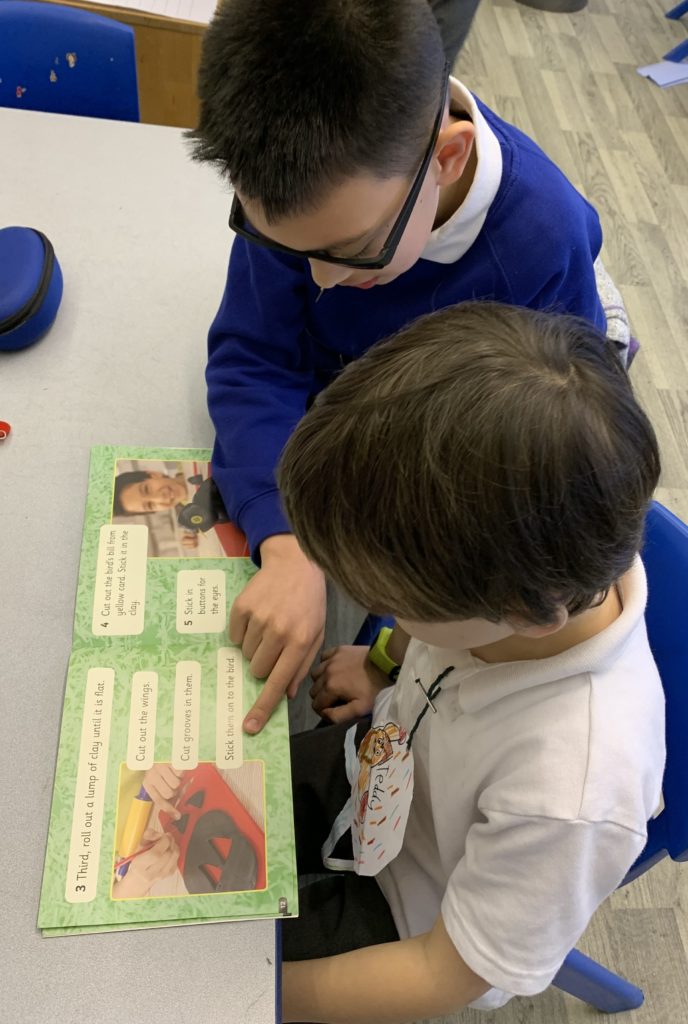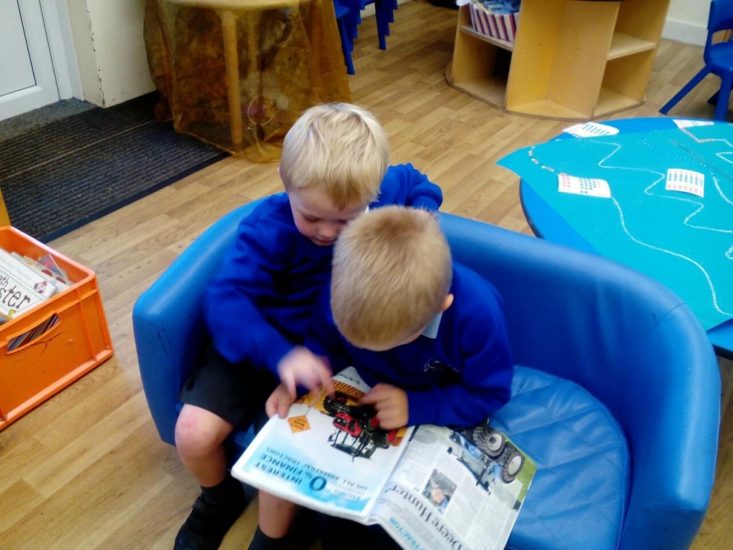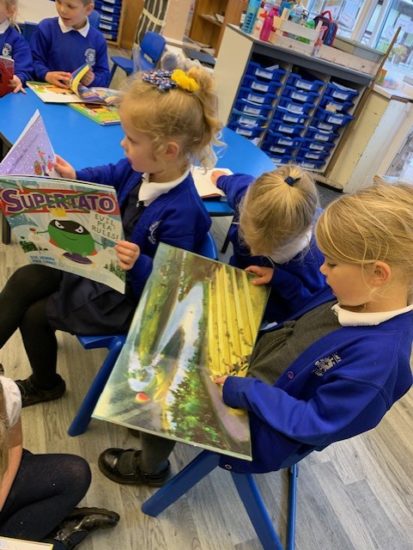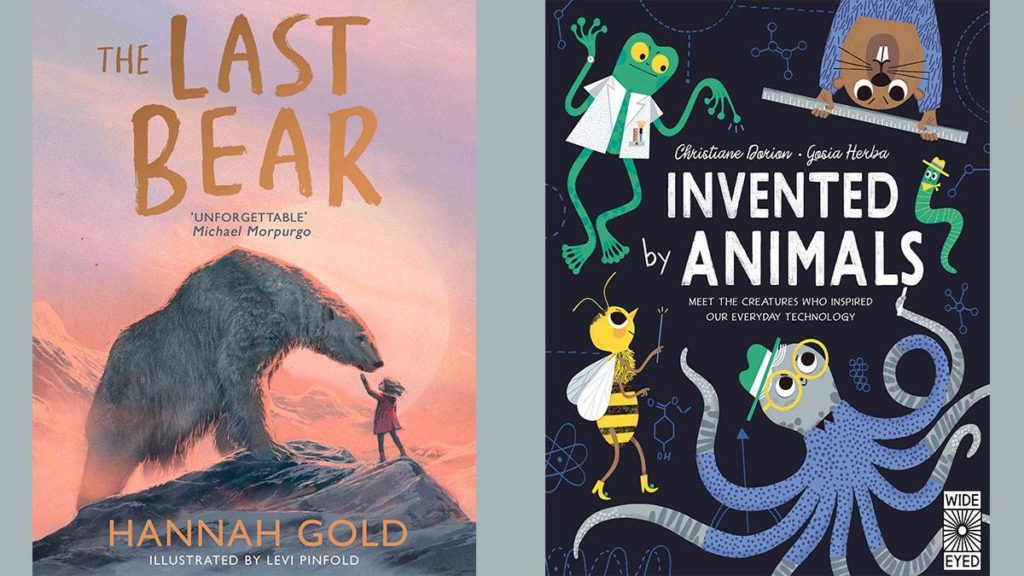At St. Mary’s Primary School, we believe every child deserves to be a reader and the most important skill any child can leave primary school with is the ability to read independently and effectively for meaning and enjoyment. Our aim is to develop a life long love of reading for everyone at our school.
The importance of reading at St. Mary’s CE School
‘Reading can be relaxing, a way to calm when I to go to sleep but also at the same time engrossing and grips me to zone in and never want to stop!’ Year 4 child.
Reading for pleasure is an important part of life at St.Mary’s School. Reading a partnership between home and school, and children and adults. Spontaneous book blether is part of our daily life.
‘I started my own book club for Reception children this year. I like finding books they haven’t read. Now Year 1s and 2s come and join our lunchtime book club and ask for different stories. I love using voices and they laugh!’ Year 3 child.
Our aim is that our children will develop a love for reading. Reading is central to our curriculum and we believe reading is a vital skill that will support children’s learning across the whole curriculum. At St.Mary’s, we will ensure that our children are taught to read with fluency, accuracy and understanding through a variety of discreet and cross-curricular learning opportunities. Above all, we want children in our school to become enthusiastic, independent and reflective readers who enjoy reading and read for pleasure. The development of reading is not done in isolation from writing, speaking and listening but we encourage children to enjoy then whole English curriculum.
We teach reading from Foundation Stage to Year 6. This can be in the form of one-to-one reading with an adult, reading groups linked to phonics assessments, shared reading, whole-class reading, cross-curricular opportunities, adults/children reading aloud, partner reading, parent reading, reading with a QES student and independent reading.
Please see the Phonics page for information on how we teach Phonics and resources to support you at home.
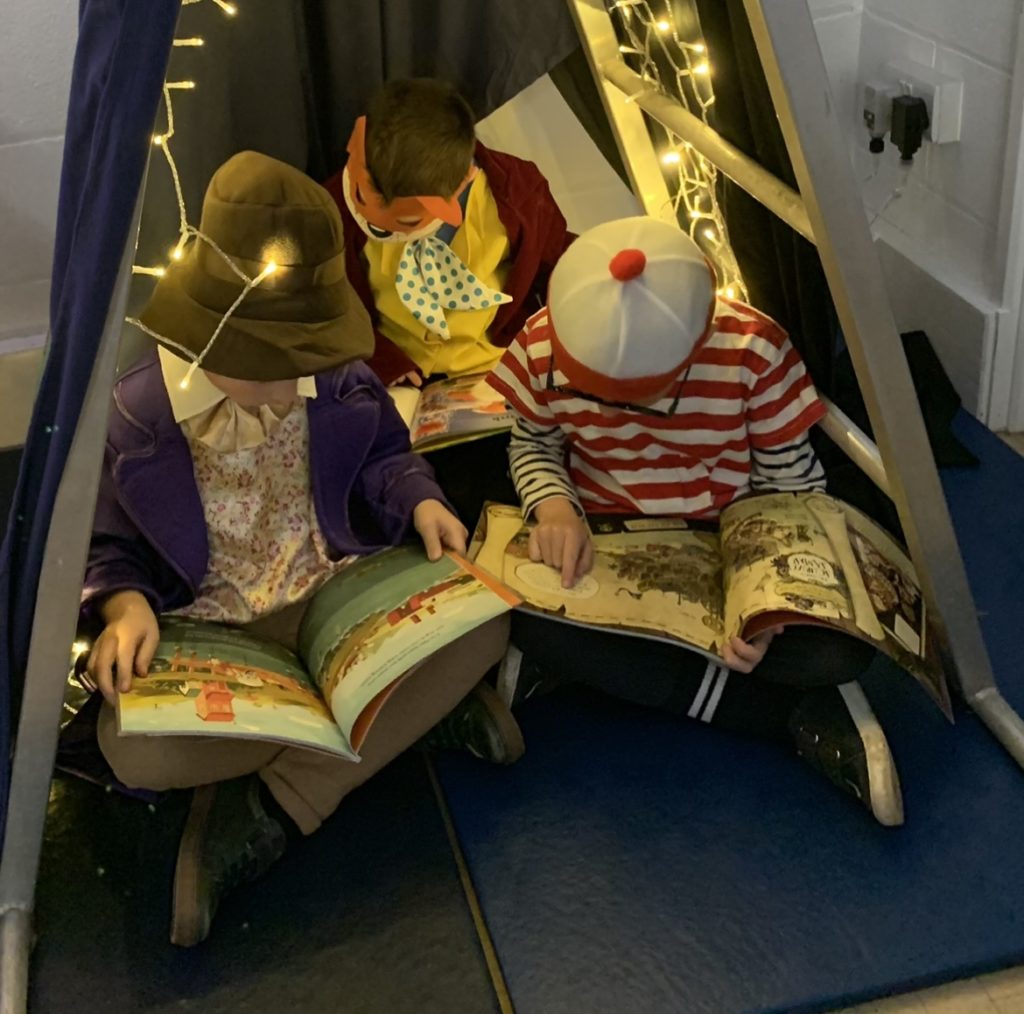
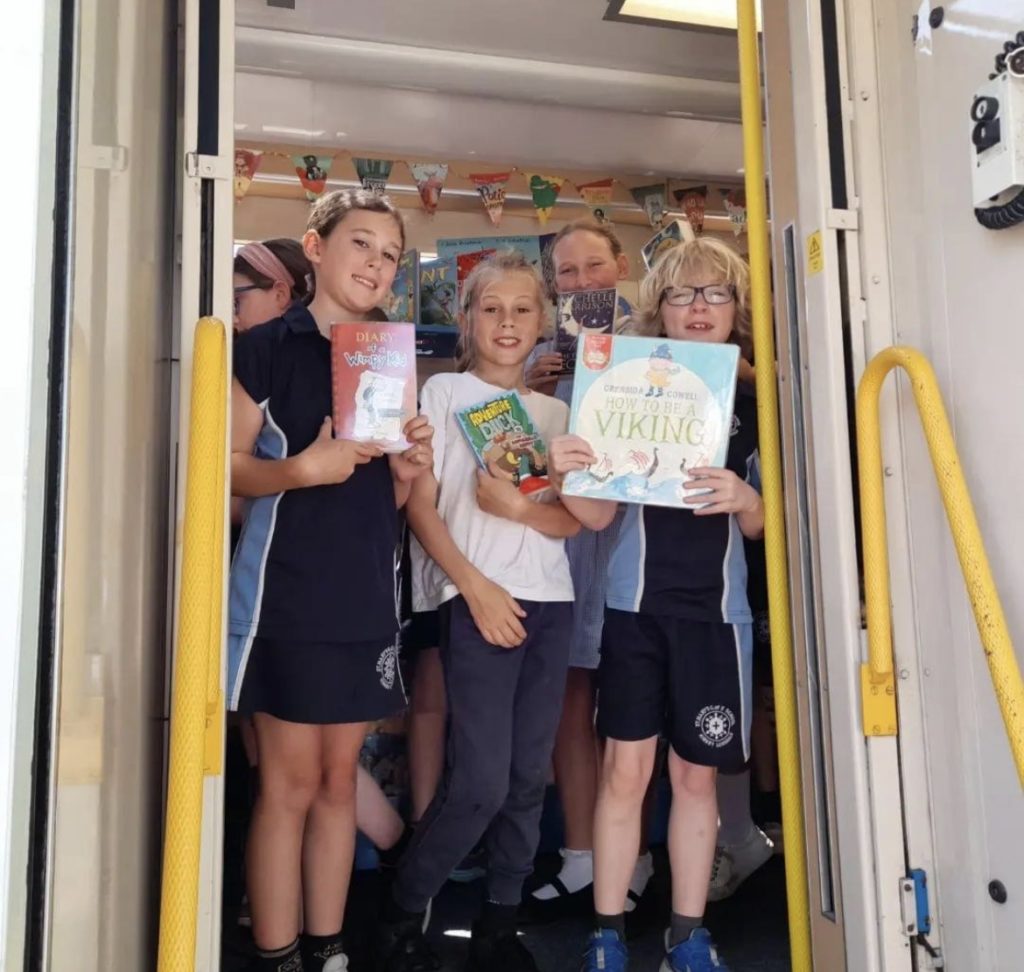
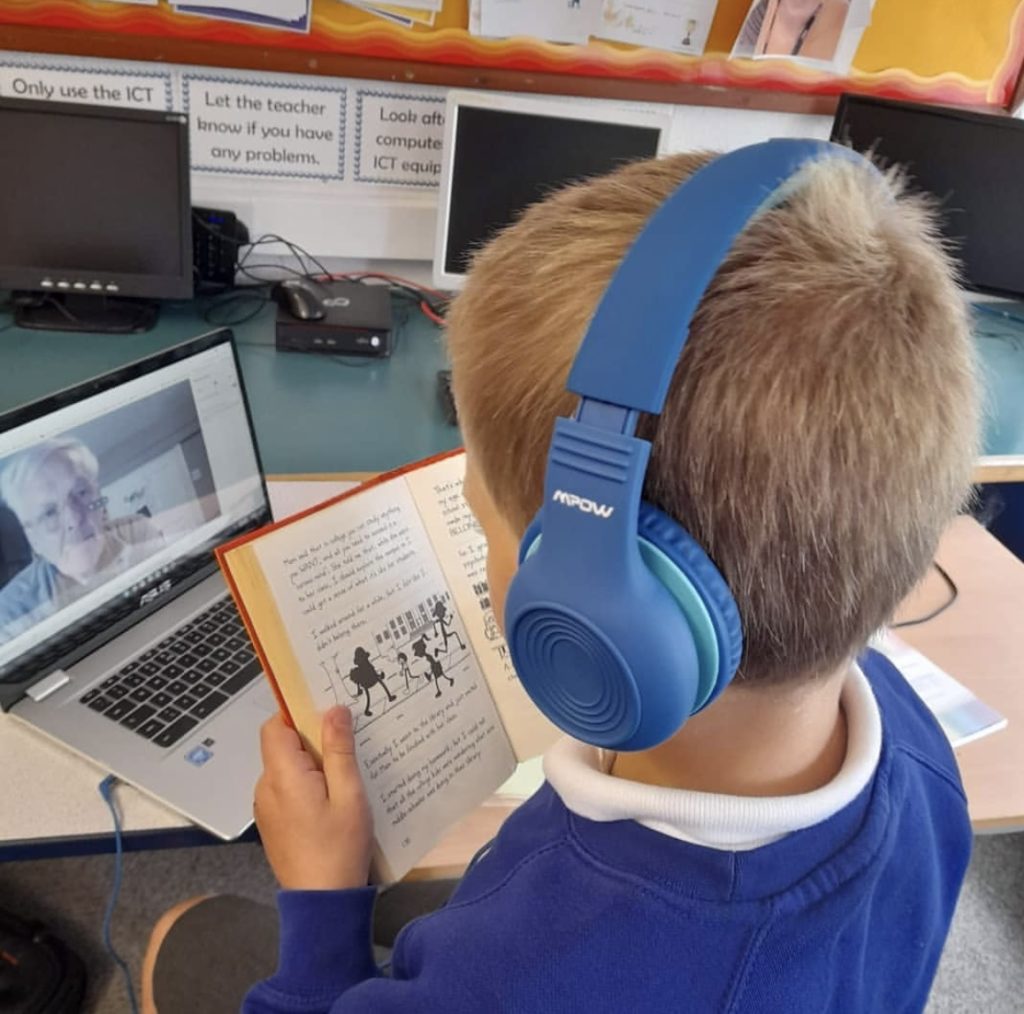
‘I enjoy reading books recommended by other children in my class. We collect recommendations and write them next to the reading tent. If we find out about a book but we don’t have it in school our class representatives use our PTA reading money to order it.’ Y4 pupil
St.Mary’s reading curriculum has three strands:
- Phonics, decoding and word reading focusing on accuracy and fluency,
- Comprehension, including vocabulary,
- Encouraging Reading for Pleasure and deepening engagement of children in reading
In EYFS and Key Stage 1, there is a synthetic phonics programme in place which is taught systematically using Read Write Inc. We also use a range of other reading strategies to broaden children’s understanding, interest and enjoyment of reading. In Key Stage 2, as their reading develops, children are encouraged to read from a wide range of fiction and non-fiction books.
A love of reading is promoted through additional activities including author and poet visits; book events; an annual book day; paired reading; shared reading with younger children and parental reading workshops.
Parents are encouraged to support reading at home and children read daily. Children in EYFS and KS1 take home a phonically decodable book matched to their learning in Phonics (Read Write Inc book bag books including fiction and non-fiction). Children are also encouraged to choose books from the shared reading shelves for use during reading for pleasure time in school and younger children take these home to share with their family. Each class visits Kirkby Lonsdale library and the local book shop throughout the year.
‘I like listening to the teacher read our class book, The BFG. She uses different voices for the characters and I always want her to read on and on and on…’ Y2 pupil
*What does whole class reading look like?
- All children read the same text which has been carefully selected. Children are exposed to a wide variety over the year.
- Teachers model reading by ‘thinking aloud’ to show the process we go through as readers.
- Effective discussion is paramount and allows for purposeful speaking and listening activities.
- Three levels of questioning in EYFS and KS1: Looking, Find a Clue and Have a Think.
- Six levels of questioning in KS2: VIPERS (Vocabulary, Inference, Prediciton, Explanation, Retrieval and Sequencing)
- Vocabulary understanding is key to comprehension. With a focus on vocabulary, our children broaden their own vocabulary and explore and explain the meaning of words in context.
- The teaching and application of specific comprehension strategies.
Helpful Questions When Reading with your Child
Reading plays a vital role in the development and education of your child. At St Mary’s we ensure that pupils have lots of opportunities to read in lots of different contexts and following their own interests.
‘When we read a book, we use drama to understand the character. I liked being Chaya from The Girl Who Stole an Elephant. We had to think about our feelings, movements and expressions when we were acting being lost and scared in the jungle.’ Y5 pupil
Opportunities for reading
Pupils also read regularly in other areas of the curriculum and in other parts of the school day through:
- Whole Class or Group Reading – Teachers work with pupils to teach specific and targeted reading skills in a book that is sufficiently challenging and sets high expectations for all children.
- Reading Across the Curriculum – Pupils read a range of books linked to other areas of their learning and have regular whole class reading lessons to look at texts in more detail.
- Read Aloud (Shared Reading) – Books are read to pupils for them to hear good examples of reading aloud and to develop an enthusiasm for reading books themselves. Class books are shared with pupils, where they read along with the teacher.
Reading Long Term Plans
Nursery Reading Long Term Plan
Reception Reading Long Term Plan
Here’s a link to the reading objectives for each year taken from the English National Curriculum
Here are a few websites to recommend new books and authors
Be involved in the UKLA Book Awards. Which is your favourite?
Here are the links for online reading resources used in KS2 school:
Important Documents
Promoting Reading for Pleasure

 015242 71334
015242 71334 admin@stmarys-kl.cumbria.sch.uk
admin@stmarys-kl.cumbria.sch.uk

